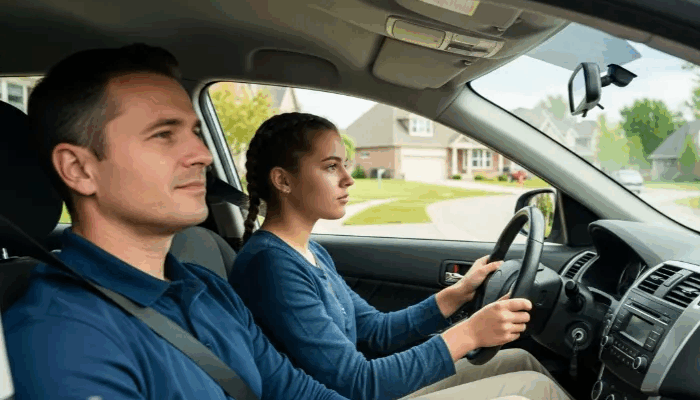Earning a driver’s license is often seen as the final step in preparing teens for independence. But many parents don’t realize how limited most driver’s education programs actually are. While they meet state requirements, these programs often focus on helping teens pass a test, not preparing them for the unpredictable, high-pressure situations they’ll face every day behind the wheel.
Merely passing the test may tick a box, but it doesn’t ensure safety, skill, or confidence. This is a significant issue that can lead to serious consequences.
Knowing the Rules Isn’t the Same as Knowing How to Drive
Traditional driver’s education typically covers the basics, such as parallel parking, reading road signs, and understanding traffic laws. However, these are just the tip of the iceberg. The truth is, most accidents don’t occur because a driver forgot a rule. They happen because of panic, misjudgment, or failure to anticipate a hazard.
For example, imagine your teen is approaching an intersection where another driver starts creeping into the lane. Do they tap the brakes? Swerve? Freeze up? These aren’t questions the typical curriculum answers.
What’s missing is the ability to stay calm under pressure, recognize risk before it becomes danger, and make quick, smart decisions in the moment. Those are the kinds of skills that separate a licensed driver from a truly prepared one.
Crashes Often Involve What Teens Were Never Taught
Ask any law enforcement officer about teen crashes, and the patterns are clear: distraction, panic, and poor anticipation. Not reckless behavior—just inexperience and under-preparation.
This is something that instructors at Magnolia Driving Academy in Gonzales, Louisiana, see regularly. Founded by a veteran police officer, the academy was established after witnessing numerous preventable crashes. Most of them involved teens who technically followed the rules but weren’t trained to think ahead or respond well when something went wrong.
That insight changed the approach. Instead of teaching to the test, the school focuses on how crashes happen and how to prevent them.
Defensive Thinking Should Be Standard, Not Optional
There’s a common belief that defensive driving is an advanced skill. In reality, it’s foundational. Every teen should be taught how to:
- Recognize risky drivers and road conditions
- Stay calm in high-pressure moments
- Avoid overcorrecting or freezing
- Make safe decisions when things don’t go as planned
This is where real-world experience matters. At Magnolia Driving Academy, every instructor has a background in law enforcement. They know what causes crashes and how to train students to spot trouble before it starts.
It’s not just about safety. It’s about confidence. Students who know what to expect are less likely to panic, more likely to respond with control, and more prepared to protect themselves and others.
How Magnolia Driving Academy Fills the Gaps
What sets Magnolia apart is not just the experience of its instructors, but how that experience shapes the curriculum. Instead of treating driving like a checklist, the academy treats it as a life skill. Every lesson is designed to build long-term awareness, good judgment, and steady confidence.
Students receive one-on-one instruction in real traffic, not simulations. They’re taught how to think, not just how to pass. Parents are kept informed with honest feedback and progress updates, so they know their teen isn’t just learning to drive—they’re learning to stay safe.
If you’re searching for a driving school in Gonzales, Louisiana, look for one that focuses on real-life safety, not shortcuts.
Ask More From Your Teen’s Driver Education
Before signing up for a driving course, ask yourself: Will this program help my teen handle a real emergency on the road? Will it give them more than just enough to pass?
If the answer is no, it’s worth exploring what officer-led training can offer. The difference isn’t just in the teaching—it’s in the outcomes.
To see which course fits your teen’s needs, visit Magnolia Driving Academy’s course offerings.

